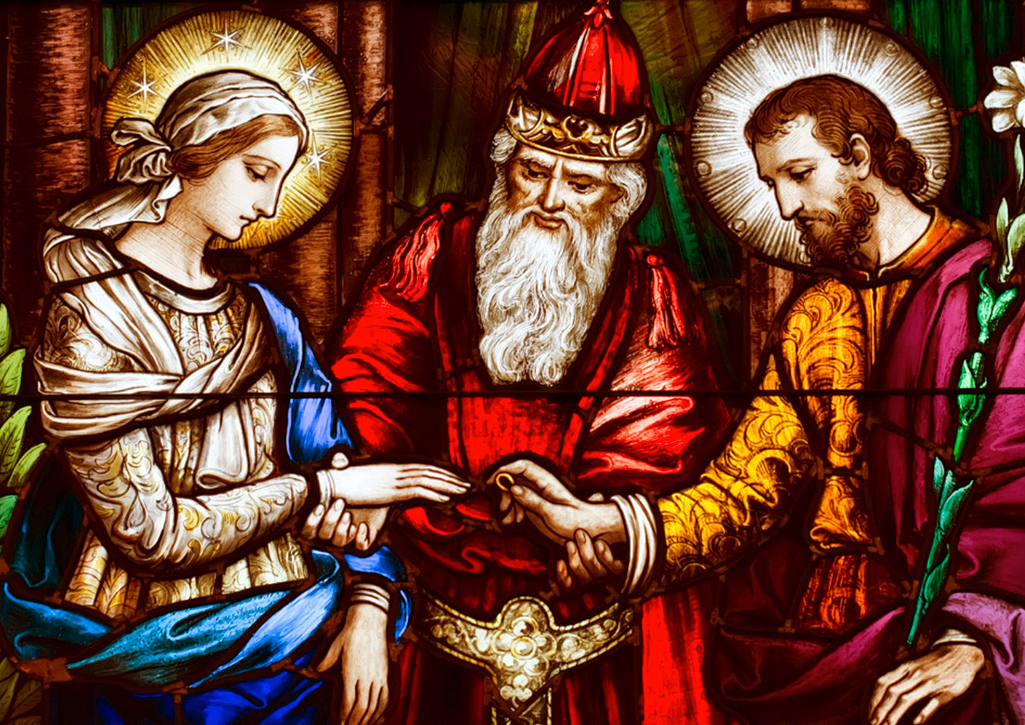Christian Art | Easter To Pentecost
Office Of Readings | Eastertide Week 7, Friday | From The Treatise On The Trinity By Saint Hilary Of Poitiers | Gift Of The Father In Jesus Christ
‘The gift of the Father in Jesus Christ.’
The Father’s Gift In Jesus Christ
Saint Hilary of Poitiers, a central figure in the development of Trinitarian theology during the fourth century, writes with clarity and conviction about the inner life of God and the role of the Holy Spirit. In this reflection, he meditates on the unity and diversity within the Trinity and on the Spirit’s role as the gift that allows us to participate in divine truth.
Trinitarian Baptism And The Divine Order
Hilary begins by recalling Christ’s command to baptise ‘in the name of the Father and of the Son and of the Holy Spirit’. This Trinitarian formula (cf. Matthew 28:19) is foundational to Christian belief. It affirms that baptism is not simply a ritual but an immersion into the life of the Triune God.
Hilary defines the distinct roles within the Trinity: the Father as Creator, the Son as Mediator and Agent of creation, and the Spirit as Gift. These are not three separate gods, but three persons united in divine nature and purpose. Each operates in perfect harmony: the Father originating all, the Son enacting the Father’s will, and the Spirit perfecting and dwelling within creation.
He writes of a ‘flawless union’ in which there is ‘infinity of endless being’, a ‘perfect reflection of the divine image’, and ‘mutual enjoyment of the gift’. These expressions echo the great Trinitarian theology of his time, particularly that which was developed in opposition to Arianism, a heresy which denied the full divinity of the Son and, by extension, the Spirit.
The Purpose Of The Spirit
Hilary quotes Christ’s words from the Gospel of John: ‘It is to your advantage that I go away… the Spirit of truth will guide you into all truth.’ These lines clarify the mission of the Holy Spirit—not to establish a new message but to make known what the Father and Son have revealed. The Spirit is not independent in purpose, but rather communicates what he hears from the Father and the Son.
He also quotes: ‘He will glorify me, for he will take what is mine.’ The Spirit is not a subordinate messenger but an agent of divine self-revelation. This affirms the consubstantiality of the Spirit with the Father and the Son—an essential doctrine formalised at the First Council of Constantinople in 381.
The Spirit As Intermediary And Illumination
Hilary observes the human mind’s incapacity to grasp the divine without divine aid. The Spirit, as Advocate and Intermediary, helps us perceive and believe in the Incarnation—a ‘hard doctrine’ of faith. The Spirit shines light upon the mysteries of God, not creating new truths but revealing eternal ones.
To illustrate this, Hilary offers an analogy from human physiology: just as the eyes need light to see and the ears need sound to hear, so too the soul needs the Spirit to perceive divine truth. This is a compelling image, showing that the Spirit does not alter the nature of the soul but enables it to function according to its higher purpose—communion with God.
This notion resonates with Saint Paul’s words in 1 Corinthians 2:14: ‘The natural man does not accept the things that come from the Spirit of God… they are spiritually discerned.’ Hilary affirms that without the Spirit, we may have the capacity to know God, but we lack the light to do so.
The Universality And Particularity Of The Spirit’s Gift
Hilary concludes by affirming both the universal availability of the Spirit and the personal conditions of its reception. The Spirit is ‘everywhere available’, but he is given ‘in proportion to [one’s] readiness to receive’. This recalls the image of divine grace as both boundless and respectful of human freedom.
The Spirit’s presence is described in eschatological terms: he is the pledge of our hope, the light of our minds, and the splendour of our understanding. This evokes Ephesians 1:13–14, where the Spirit is described as the ‘seal’ and ‘guarantee’ of our inheritance.
This teaching offers profound encouragement: our capacity to receive the Spirit depends not on merit but on our openness and desire. As Hilary writes, ‘Its presence is the fuller, the greater a man’s desire to be worthy of it.’
Reflection | Love Revealed By Jesus Christ
Hilary’s teaching draws us into deeper wonder at the mystery of the Trinity and the indispensable role of the Holy Spirit in our lives. The Spirit is not an abstract power but a personal presence—the gift that completes the work of creation and redemption, and brings light to the mind and warmth to the heart.
Let us then make ourselves ready, through faith, humility, and desire, to receive this gift anew. For in receiving the Spirit, we are drawn into the very life of God.

From The Treatise On The Trinity By Saint Hilary Of Poitiers | Gift Of The Father In Jesus Christ
Our Lord commanded us to baptize in the name of the Father and of the Son and of the Holy Spirit. In baptism, then, we profess faith in the Creator, in the only-begotten Son and in the gift which is the Spirit. There is one Creator of all things, for in God there is one Father from whom all things have their being. And there is one only-begotten Son, our Lord Jesus Christ, through whom all things exist. And there is one Spirit, the gift who is in all. So all follow their due order, according to the proper operation of each: one power, which brings all things into being, one Son, through whom all things come to be, and one gift of perfect hope. Nothing is wanting to this flawless union: in Father, Son and Holy Spirit, there is infinity of endless being, perfect reflection of the divine image, and mutual enjoyment of the gift.
Our Lord has described the purpose of the Spirit’s presence in us. Let us listen to his words: I have yet many things to say to you, but you cannot bear them now. It is to your advantage that I go away; if I go, I will send you the Advocate. And also: I will ask the Father and he will give you another Counsellor to be with you for ever, the Spirit of truth. He will guide you into all the truth; for he will not speak on his own authority, but whatever he hears he will speak, and he will declare to you the things that are to come. He will glorify me, for he will take what is mine.
From among many of our Lord’s sayings, these have been chosen to guide our understanding, for they reveal to us the intention of the giver, the nature of the gift and the condition for its reception. Since our weak minds cannot comprehend the Father or the Son, we have been given the Holy Spirit as our intermediary and advocate, to shed light on that hard doctrine of our faith, the incarnation of God.
We receive the Spirit of truth so that we can know the things of God. In order to grasp this, consider how useless the faculties of the human body would become if they were denied their exercise. Our eyes cannot fulfil their task without light, either natural or artificial; our ears cannot react without sound vibrations, and in the absence of any odour our nostrils are ignorant of their function. Not that these senses would lose their own nature if they were not used; rather, they demand objects of experience in order to function. It is the same with the human soul. Unless it absorbs the gift of the Spirit through faith, the mind has the ability to know God but lacks the light necessary for that knowledge.
This unique gift which is in Christ is offered in its fullness to everyone. It is everywhere available, but it is given to each man in proportion to his readiness to receive it. Its presence is the fuller, the greater a man’s desire to be worthy of it. This gift will remain with us until the end of the world, and will be our comfort in the time of waiting. By the favours it bestows, it is the pledge of our hope for the future, the light of our minds, and the splendour that irradiates our understanding.

Glossary Of Terms
- Trinity – The Christian doctrine that God is one Being in three Persons: Father, Son, and Holy Spirit.
- Arianism – A fourth-century heresy that denied the full divinity of Jesus Christ.
- Consubstantiality – The teaching that the Son and the Holy Spirit are of the same substance or essence as the Father.
- Incarnation – The belief that the Son of God became flesh in the person of Jesus Christ.
- Advocate / Counsellor – Titles for the Holy Spirit that denote his role in guiding and comforting believers.
- Eschatological – Pertaining to the end times or final destiny of the soul and of humanity.
- Seal (of the Spirit) – A scriptural term denoting the Spirit as a guarantee of believers’ future inheritance (cf. Ephesians 1:13–14).
- Theosis / Divinisation – The process by which a person becomes more like God through grace.
- Mutual enjoyment of the gift – A phrase describing the shared delight within the Trinity.
Final Prayer
Heavenly Father,
You sent Your Son to redeem us and Your Holy Spirit to dwell within us. We thank You for the mystery of Your triune love, revealed in creation, redemption, and sanctification.
Open our hearts ever more fully to the Gift of the Spirit: the Light of our minds, the Comforter of our souls, the Pledge of eternal hope.
May we be made worthy to receive this Gift in its fullness.
Through Christ our Lord. Amen.








